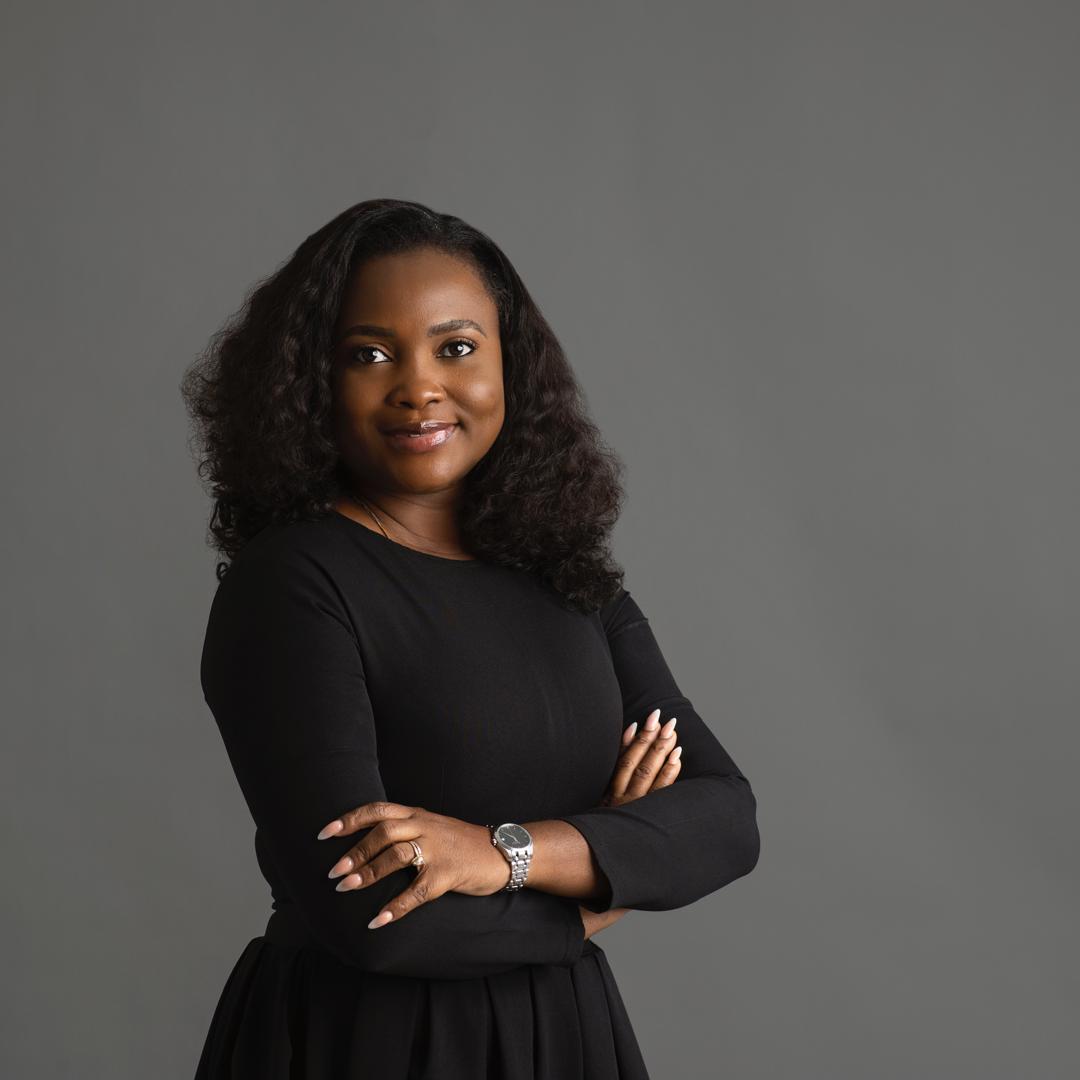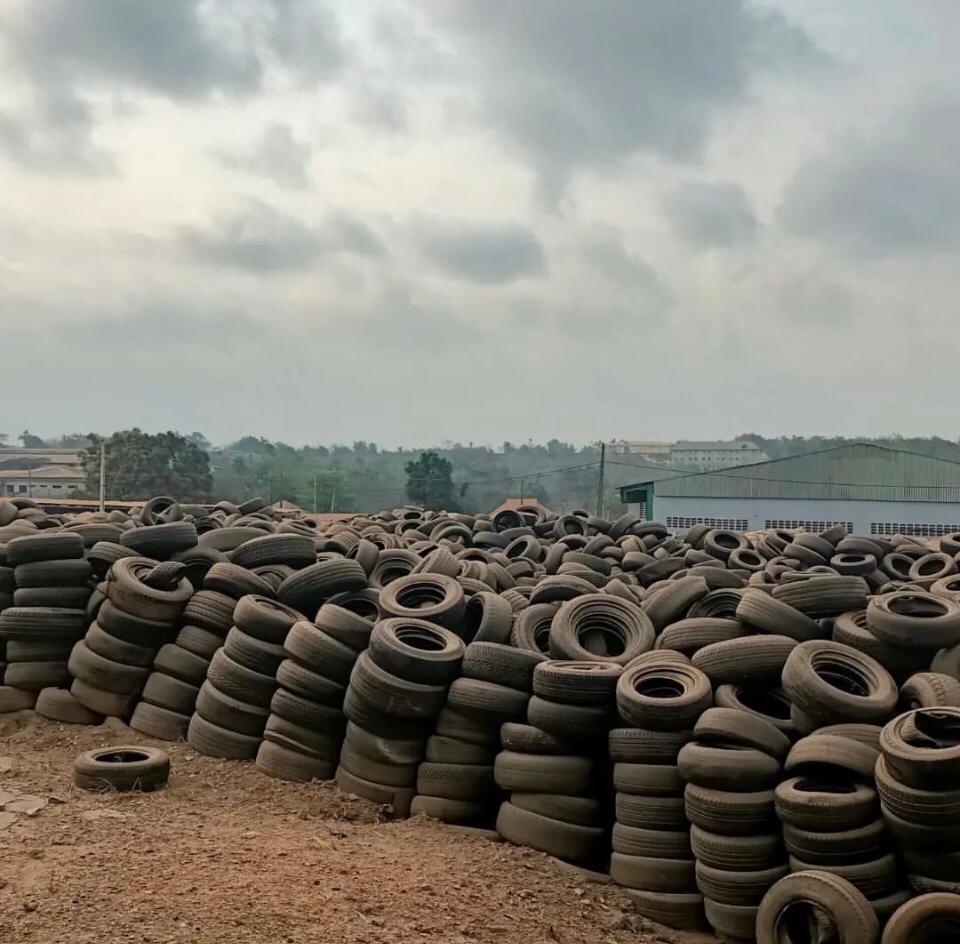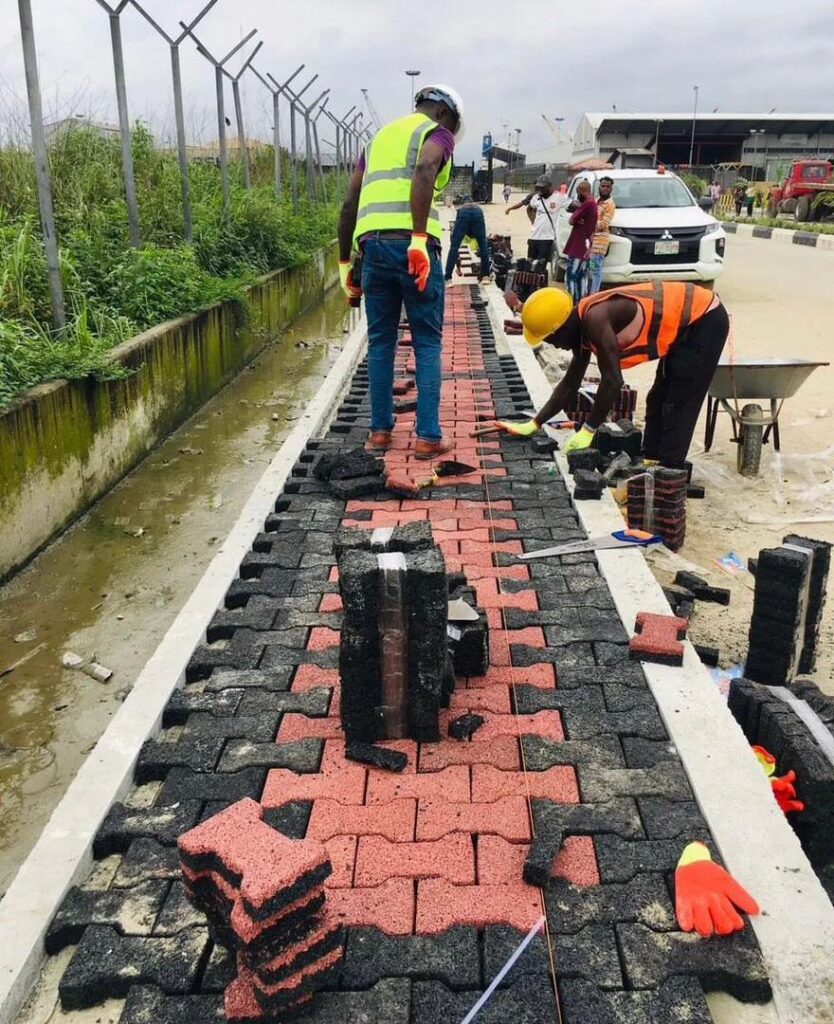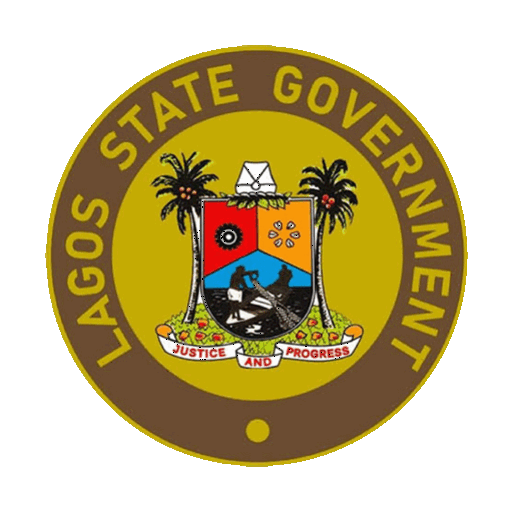
Ifedayo Runsewe is turning Tyres to Naira
The issue of waste tyres in Nigeria is no joke, causing all sorts of problems for health, the environment, and the economy. Can you believe that Nigeria generates over 3 million waste tyres every year? That’s a crazy number, and it’s a concern for every single Nigerian.
But guess what? Ifedolapo Runsewe, the Managing Director at Free Recycle Limite, saw this problem and decided to tackle it head-on. She didn’t see it as just a business opportunity, but as an urgent matter that needed immediate attention. She’s not only finding an environmental solution but also reducing carbon emissions by recycling those waste tyres.
We had the chance to chat with Ifedolapo about her circular business, the challenges she faced, and how she could inspire other ECO businesses.
1. Can we meet you, Ma?
My name is Ifedolapo Runsewe, and I serve as the Managing Director of FREEE Recycle Limited, Nigeria’s leading integrated recycling and manufacturing company. I hail from Ekiti State and possess over a decade of professional experience across various sectors, including banking and telecommunications, both within Nigeria and internationally.
2. Can you tell us about your circular business and the mission behind it?
FREEE Recycle Limited, as an integrated recycling and manufacturing company, is driven by our commitment to three major key factors:
- Environmental sustainability is achieved by converting waste tyres into eco-friendly products like rubber tiles (interlock pavers, plain tiles, turtle shell tiles), rubber mats (interlock mats, rubber rolls, doormats, etc.), and sustainable fashion products (flip flops, bags, shoe soles, etc.). This reduces carbon emissions and conserves resources.
- We are supporting 12 of the 17 UN Sustainable Development Goals through our recycling initiatives.
- Job creation and women’s empowerment
Our recycling efforts have had a significant sustainability and social impact. Since inception, we have successfully recycled over 250,000 tyres into over 144,000 square metres of rubber products. In this same period, our recycling activities have resulted in the prevention of over 8,100 metric tonnes of carbon emissions as well as 2,250 malaria mortalities.

3. What inspired you to start a circular business and focus on sustainability?
The accumulation of discarded tyres has emerged as a significant environmental concern in Nigeria, presenting a multitude of environmental, health, and economic challenges. It is estimated that Nigeria generates an alarming number of over 3 million waste tyres annually. As an environmentally conscious Nigerian citizen, I recognised the urgent need to address this issue, develop an environmental solution through the recycling of these waste tyres, and also mitigate the detrimental impact caused by their improper disposal. This realisation marked the beginning of the journey that led to the establishment of FREEE Recycle Limited.
4. How does your business incorporate principles of the principles of the circular economy into its operations?
FREEE Recycle has successfully incorporated circular economy principles into its business operations in several ways:
- Waste Valorization: The core of our business model revolves around valorizing waste tyres, which are a significant environmental problem in Nigeria. By recycling these tyres, we are giving them a new lease of life as valuable products, thereby reducing waste and promoting resource efficiency.
- Closed-loop recycling: We have established a closed-loop recycling system where discarded tyres are collected, processed, and transformed into a range of eco-friendly products, such as rubber tiles, mats, and fashion items. This exemplifies the circular principle of designing out waste and keeping materials in use for as long as possible.
- Environmental Impact Reduction: Through our recycling efforts, we have prevented over 8,100 metric tonnes of carbon emissions, contributing to the mitigation of climate change. Additionally, by reducing the accumulation of waste tyres, we have also helped curb potential breeding grounds for disease-carrying mosquitoes, thereby reducing an estimated 2,250 potential malaria mortalities.
- Product Lifecycle Extension: By creating durable and long-lasting products from recycled tyres, you are extending the lifecycle of the materials, further reducing the need for virgin resources and minimising waste generation.
5. What specific sustainable practices or initiatives does your brand implement?
At FREEE Recycle, we implement various sustainable practices and initiatives to promote environmental stewardship. One such initiative is our Extended Consumer Responsibility (ECR). Through ECR, we hold consumers accountable for the waste tyres they generate. This initiative not only encourages responsible waste management but also contributes to the development of waste collection and recycling infrastructure, thereby supporting the circular economy.
6. Can you share any success stories or examples of how your eco-business has made a positive impact on the environment?
FREEE Recycle Limited has been instrumental in transforming waste tyres into valuable resources, demonstrating a remarkable success story in environmental conservation. Through its innovative recycling processes, FREEE Recycle Limited has repurposed over 250,000 tyres, converting them into more than 144,000 square metres of rubber products since its inception. This significant achievement not only diverts waste from landfills but also contributes to the circular economy by giving new life to discarded materials. Moreover, FREEE Recycle Limited’s recycling activities have had a profound impact on reducing carbon emissions. By preventing over 8,100 metric tonnes of carbon emissions through its tyre recycling initiatives, the company has made substantial strides in mitigating environmental pollution and combating climate change.
Overall, FREEE Recycle Limited’s success story serves as a shining example of how eco-businesses can make a tangible, positive impact on the environment through innovative solutions and dedicated efforts towards sustainability.

7. How do you communicate the importance of sustainability to your customers and inspire them to make eco-friendly choices?
FREEE Recycle’s operations extend beyond tyre recycling, as we actively facilitate positive change by educating customers and inspiring eco-friendly choices. We empower customers and the general public to make informed decisions and contribute to a more sustainable future through:
- Campaigns and social media outreach to raise awareness about sustainability and the importance of making environmentally conscious decisions.
- Leveraging our website and events as knowledge hubs to share information and inspire people to adopt greener practices.
- Partnerships with like-minded organisations and influencers to amplify the message and reach wider audiences
8. What challenges have you faced in running an eco-business, and how have you overcome them?
Running an eco-business comes with its own unique set of challenges. In the course of our business operations, we have been able to identify some challenges and address them by:
- Collaborating with government bodies to develop a regulatory framework that encourages recycling and reduces waste generation.
- Leveraging technology like our proprietary app, FREEE, to digitise the waste collection process and gather data on informal waste collection. The FREEE App not only streamlines operations but also provides valuable insights for informed decision-making on waste tyre management.
- Collaborating with major industry players and leveraging technology to gather data on waste generation sub-sectors can help bridge the gap and bring more transparency to the informal sector, facilitating better regulation and integration with formal channels.
By addressing these barriers through collaboration, technology adoption, and regulatory frameworks, we aim to overcome challenges and advance sustainable practices in our eco-business.

9. How do you collaborate with other circular businesses or organisations to create a larger impact?
FREEE Recycle has actively collaborated with various strategic partners, including APM Terminal (building of playgrounds for primary schools) and Access Bank (ongoing collaboration with Access Bank for a Sandal More for primary school students), through the FREEE Impact Foundation. These collaborations have led to tangible positive impacts on the environment.
The Office of Climate Change and Circular Economy stands out for its proactive approach to uniting stakeholders towards sustainable practices. It effectively cultivates awareness, shares invaluable eco-values, and fosters collaborative environmental progress.
10. What advice would you give to aspiring business owners who want to dive into the circular economy space and make a difference?
Embracing the circular economy is a commendable pursuit, and I will applaud any young entrepreneur interested in tackling waste management, and I will admonish them to go for it. While challenges exist, I assure you that this field also presents numerous opportunities, both locally and internationally.
11. How do you measure the success of your business in terms of environmental impact and profitability?
At FREEE Recycle, we measure our success through a dual lens: environmental impact and financial sustainability. We track several key metrics to gauge our environmental performance. These include the number of tyres we recycle, the amount of rubber we create from them, and the reduction in carbon emissions we achieve.


